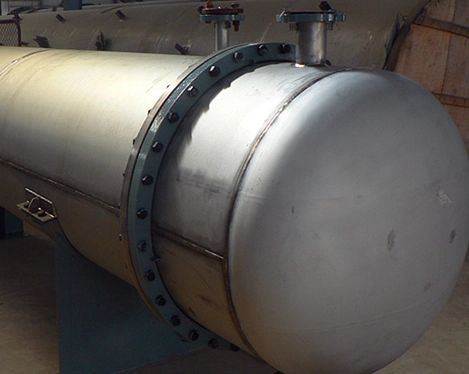Titanium Heat Exchangers In Various Industries
Chemical Processing Industry
In the chemical processing industry, titanium heat exchangers play a crucial role in heating and cooling corrosive fluids. They are ideal for applications involving acids, alkalis, and other aggressive chemicals. The superior corrosion resistance of titanium makes it an excellent choice for such environments, ensuring the longevity and efficiency of the heat exchanger.
Petrochemical Industry
The petrochemical industry often involves processes that handle corrosive and high-temperature fluids. Here, titanium heat exchangers, such as the titanium tube heat exchanger, are employed for efficient heat transfer in equipment like condensers and reboilers. Their ability to withstand high temperatures and resist corrosion makes them an invaluable asset in this industry.
Aerospace Industry
In the aerospace industry, weight reduction and corrosion resistance are critical. Titanium heat exchangers, due to their lightweight and high strength, are utilized in applications such as aircraft air conditioning systems. Their ability to resist corrosion even in extreme conditions further enhances their suitability for aerospace applications.
Marine Industry
Titanium heat exchangers find extensive applications in the marine industry, particularly in shipboard HVAC systems and seawater desalination units. Their resistance to corrosion in saltwater environments makes them an ideal choice for such applications, ensuring reliable and efficient operation.
Food and Beverage Industry
In the food and beverage industry, processes often involve the heating or cooling of liquids and pastes. Titanium heat exchangers, such as the titanium plate heat exchanger, are used in these processes due to their corrosion resistance, which is beneficial in sanitary applications.
Medical Industry
The medical industry requires equipment and processes that offer resistance to corrosion and biocompatibility. Titanium heat exchangers meet these requirements, making them suitable for various medical applications. Their ability to resist corrosion even in the presence of various chemicals and biological materials ensures their reliability and safety in medical applications.

Titanium Heat Exchangers in Mining and Metallurgy
In mining and metallurgical processes, titanium heat exchangers can withstand the corrosive effects of acids and other chemicals involved in heat-intensive applications. Their high heat transfer efficiency and corrosion resistance make them an excellent choice for these demanding applications.
Titanium Heat Exchangers in Water Treatment
In water treatment systems, titanium heat exchangers are employed for efficient heat transfer in processes like sludge digestion, where corrosive elements may be present. Their ability to resist corrosion ensures their longevity and efficiency, making them an invaluable asset in water treatment applications.
In conclusion, titanium heat exchangers, whether it’s a titanium pool heat exchanger, a titanium heat exchanger for swimming pool, or a gas pool heater titanium heat exchanger, offer superior performance and durability, making them a worthwhile investment for various applications. Choosing a high-quality product from a reputable manufacturer like a ChangSheng titanium heat exchanger manufacturer can ensure you get the best value for your money.
Titanium Heat Exchangers in Power Generation
Power plants, including nuclear, fossil fuel, and geothermal power plants, rely heavily on titanium heat exchangers. They are used in various heat exchange applications such as steam condensers, cooling systems, and heat recovery systems. The high heat transfer efficiency and durability of titanium heat exchangers make them ideal for these demanding applications.
Titanium Heat Exchangers in Desalination Plants
Desalination plants, which convert seawater into fresh water, heavily rely on titanium heat exchangers. Processes like reverse osmosis or multi-effect distillation require equipment that can withstand the harsh marine environment, and the corrosion resistance of titanium heat exchangers makes them an excellent choice.